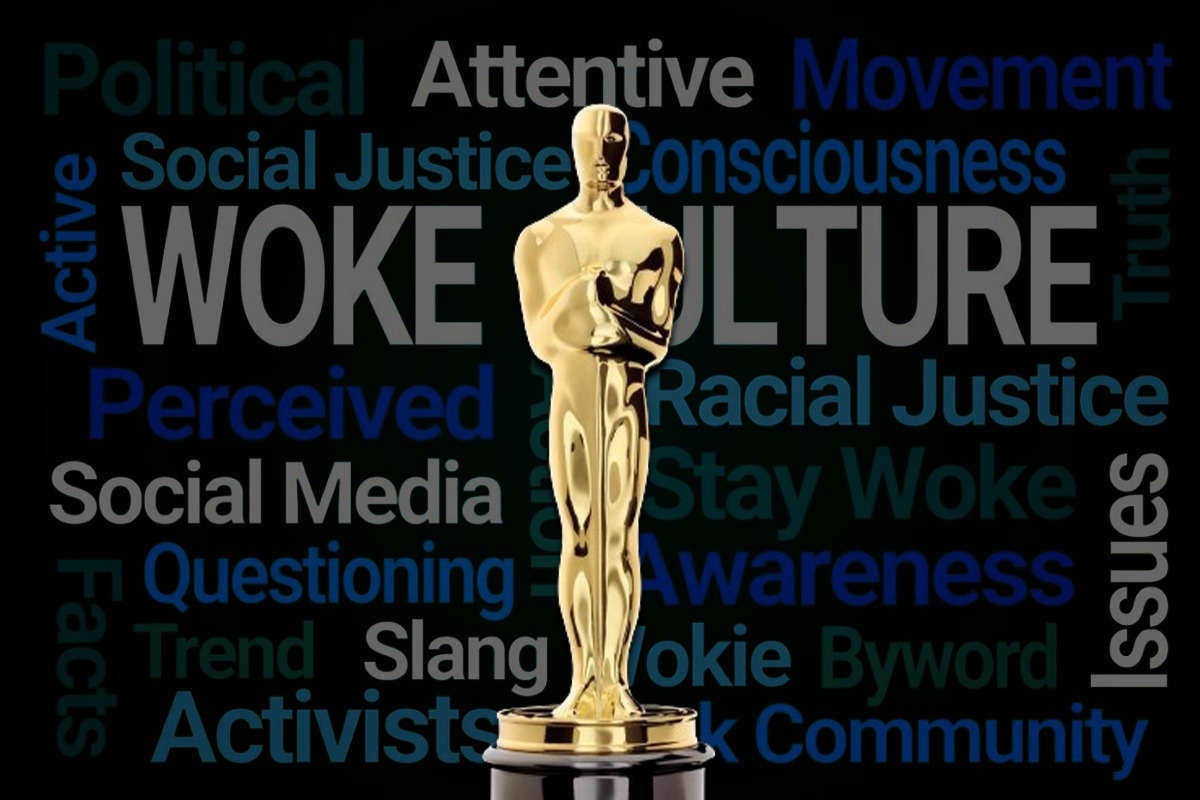In the grand theatre of Hollywood, where dreams are spun into cinematic masterpieces, the Oscars once stood as the glittering pinnacle of recognition for talent, artistry, and entertainment. Yet, in recent years, this esteemed ceremony has found itself adrift in a sea of woke politics, overshadowing its true essence of celebrating the magic of storytelling and the artistry that captivates audiences worldwide.
The Red Carpet, once a symbol of glamour and elegance, has been transformed into a soapbox for virtue signalling and political posturing. What was once a showcase of exquisite designer gowns and tuxedos has now become a platform for celebrities to flaunt their ideological leanings with pins, ribbons, and accessories, often eclipsing the celebration of the film itself. While advocacy is undoubtedly crucial, the incessant clamour of political statements has dulled the sparkle of Hollywood’s most glamorous night.
Even the Nomination Process, once revered for its commitment to cinematic excellence, has come under scrutiny for its lack of diversity. While efforts to promote inclusivity are commendable, the shift towards diversity quotas risks diluting the meritocracy upon which the Oscars were founded. Genuine talent should be recognized based on artistic merit, not on meeting arbitrary demographic checkboxes.
Acceptance Speeches, once heartfelt expressions of gratitude and joy, have devolved into rehearsed political monologues. While some speeches resonate with genuine passion and urgency, others feel obligatory, serving only to perpetuate the echo chamber of woke politics. The Oscars should be a celebration of cinema, not a platform for partisan agendas.
The cost of wokeness extends beyond mere symbolism. Meritocracy, the very foundation of the Oscars, is now in jeopardy as talent takes a back seat to diversity quotas. Viewers, the lifeblood of the Oscars, are increasingly tuning out, disenchanted by the preachy lectures that have replaced the celebration of cinematic excellence. And perhaps most alarmingly, artistic freedom itself is at risk as filmmakers navigate the treacherous waters of political correctness, self-censoring their creativity to avoid controversy.
Yet, amidst this sea of woke politics, there remains a glimmer of hope. The Oscars can reclaim their essence by embracing balance and nuance. Championing social causes while preserving artistic integrity is not an impossible feat. The red carpet can once again be a celebration of fashion, elegance, and the magic of cinema, while political statements find their place in interviews and press conferences.
Above all, the Oscars must remember their audience. Engaging viewers with compelling films, not preachy speeches, is the key to restoring their relevance and rekindling the magic of storytelling. In the pursuit of wokeness, the Oscars risk losing sight of what truly matters: celebrating the talent, artistry, and entertainment that unite us all in the enchanting world of cinema. Let us hope that they find their way back before it’s too late.










